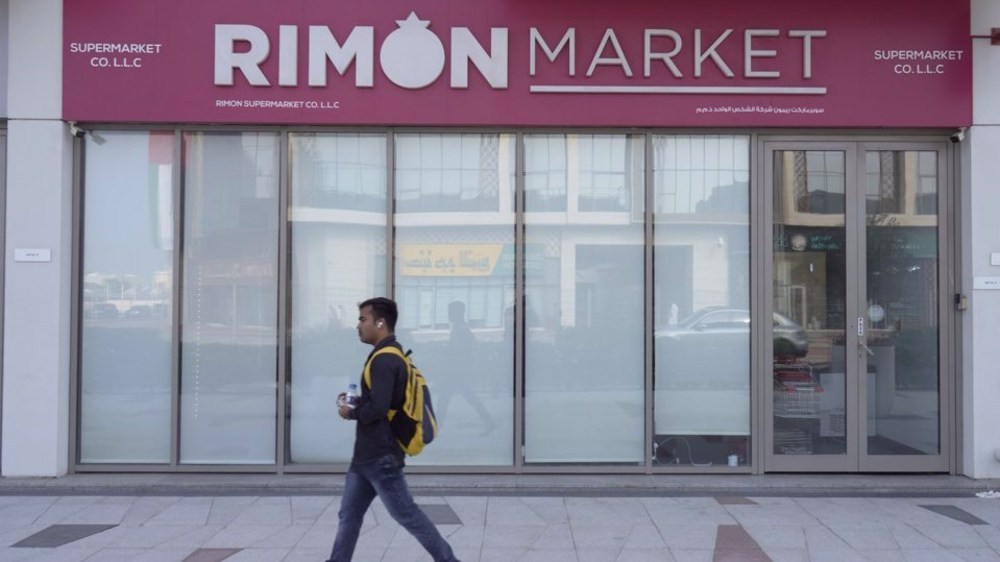Prominent Bahraini opposition newspaper dischargeس employees
Bahrain’s prominent and opposition-linked al-Wasat newspaper, which stopped publishing earlier this month as part of the Al Khalifah regime’s heavy-handed crackdown on political dissent and pro-democracy campaigners in the tiny Persian Gulf kingdom, has laid off its staff.
“We regret to inform you that the board of directors... has decided to terminate the employment contracts with the employees,” board chairman, Adel al-Maskati, wrote in an English message addressed to "all staff" on Saturday.
Maskati added in the message that al-Wasat the paper had halted its activities in accordance with the Bahraini authorities’ order to stop publishing until further notice, and the ban had “caused losses” to its owner, Dar Al-Wasat for Publishing and Distribution. Al-Wasat had some 160 staffers, including 30 expats.
The London-based Bahrain Institute for Rights and Democracy said the ban on the paper was “the latest in an escalated crackdown on independent civil society.”
Bahrain's Information Affairs Authority issued the order to shut down al-Wasat first verbally on June 4, and later through a statement published by the state-run Bahrain News Agency.
The closure of independent Bahraini newspaper came after it published an article about popular protests and a general strike in Morocco’s restive northern city of al-Hoceima.
The city, located on the northern edge of the Rif Mountains with a population of 56,000 people, has been the scene of social unrest since last October, when 31-year-old fishmonger Mouhcine Fikri was crushed to death in a garbage compactor as he protested against the seizure of swordfish caught out of season.
Tensions intensified in Hoceima on May 29, when Nasser Zefzafi, who emerged as the leader of the protesters’ Popular Movement, was arrested along with others.
Police had earlier issued the arrest warrant for Zefzafi after he confronted a local cleric, who was criticizing recent anti-corruption protests during his sermon.
Security forces later tried to arrest the activist for interrupting the preacher, but the move led to clashes between them and Zefzafi’s supporters.
This is the third time that Manama regime authorities have ordered al-Wasat newspaper to stop publishing a print edition since the outbreak of pro-democracy rallies in March 2011.
On January 16, Bahraini officials suspended the online version of the opposition newspaper, but the print edition was allowed to continue. The Information Ministry reinstated the online edition of al-Wasat three days later.

Thousands of anti-regime protesters have held demonstrations in Bahrain on an almost daily basis ever since a popular uprising began in the country in mid-February 2011.
They are demanding that the Al Khalifah dynasty relinquish power and allow a just system representing all Bahrainis to be established.
Manama has gone to great lengths to clamp down on any sign of dissent. On March 14, 2011, troops from Saudi Arabia and the United Arab Emirates were deployed to assist Bahrain in its crackdown.
Scores of people have lost their lives and hundreds of others sustained injuries or got arrested as a result of the Al Khalifah regime’s crackdown.
On March 5, Bahrain’s parliament approved the trial of civilians at military tribunals in a measure blasted by human rights campaigners as being tantamount to imposition of an undeclared martial law countrywide.
Bahraini monarch King Hamad bin Isa Al Khalifah ratified the constitutional amendment on April 3.
Dozens detained, several wounded in Israeli raids in West Bank
‘Ethnic cleansing’: Hamas blasts Israeli attacks on Gaza hospital amid intl. silence
Saudi delegation meets HTS leader at presidential palace in Damascus
Relentless Israeli ceasefire violations justify need for self-defense: Lebanese MP
Tel Aviv tells Damascus Israeli forces will remain in occupied territory: Report
Dec. 22: ‘Axis of Resistance’ operations against Israeli occupation
‘Abhorrent’: Oxfam says only 12 trucks delivered aid in North Gaza since Oct.
VIDEO | Leader receives religious eulogists on Hazrat Fatima birth anniv.

















 This makes it easy to access the Press TV website
This makes it easy to access the Press TV website